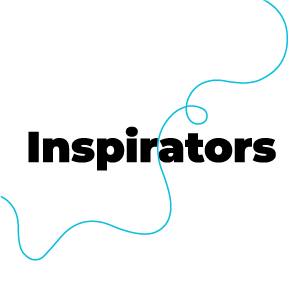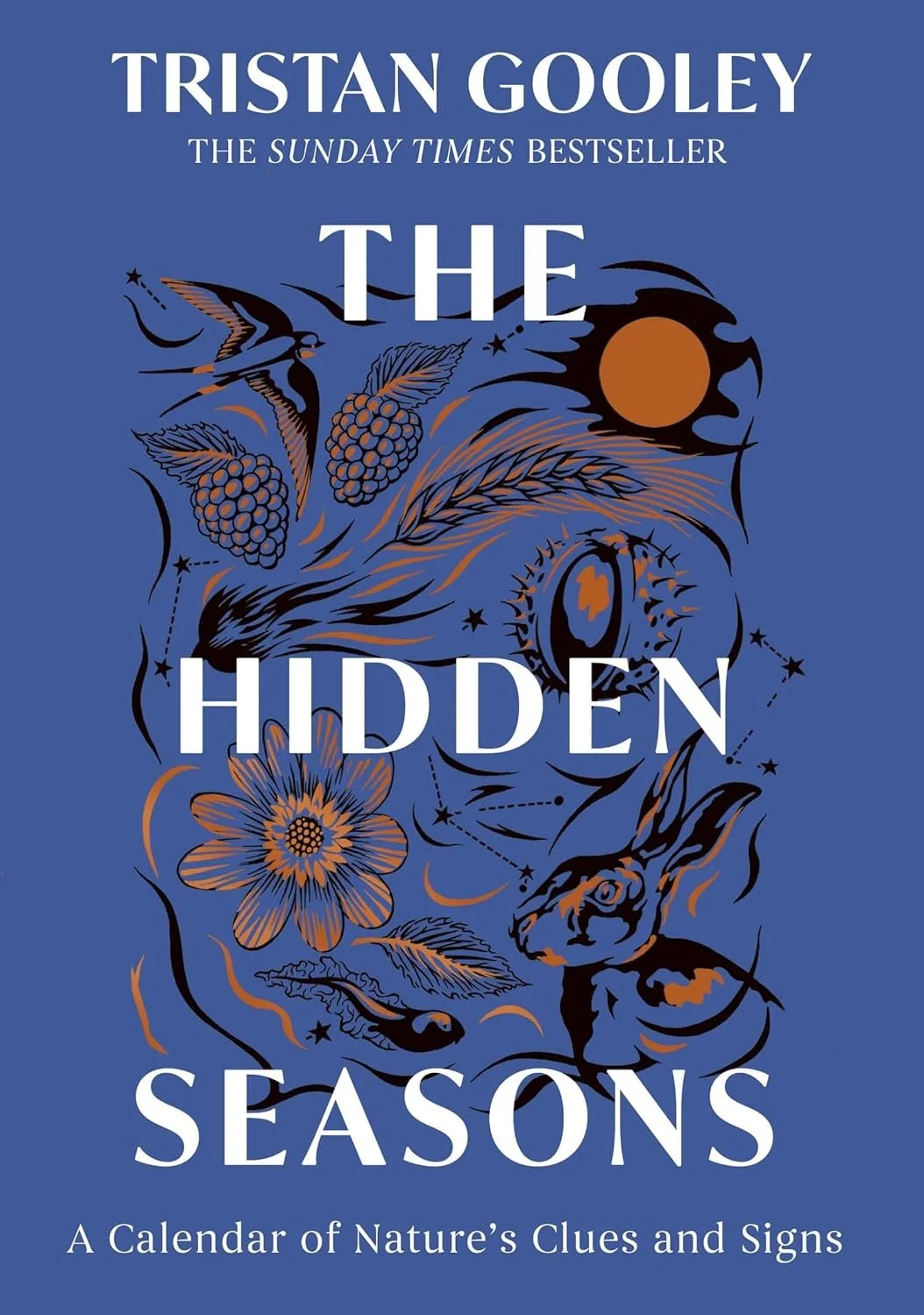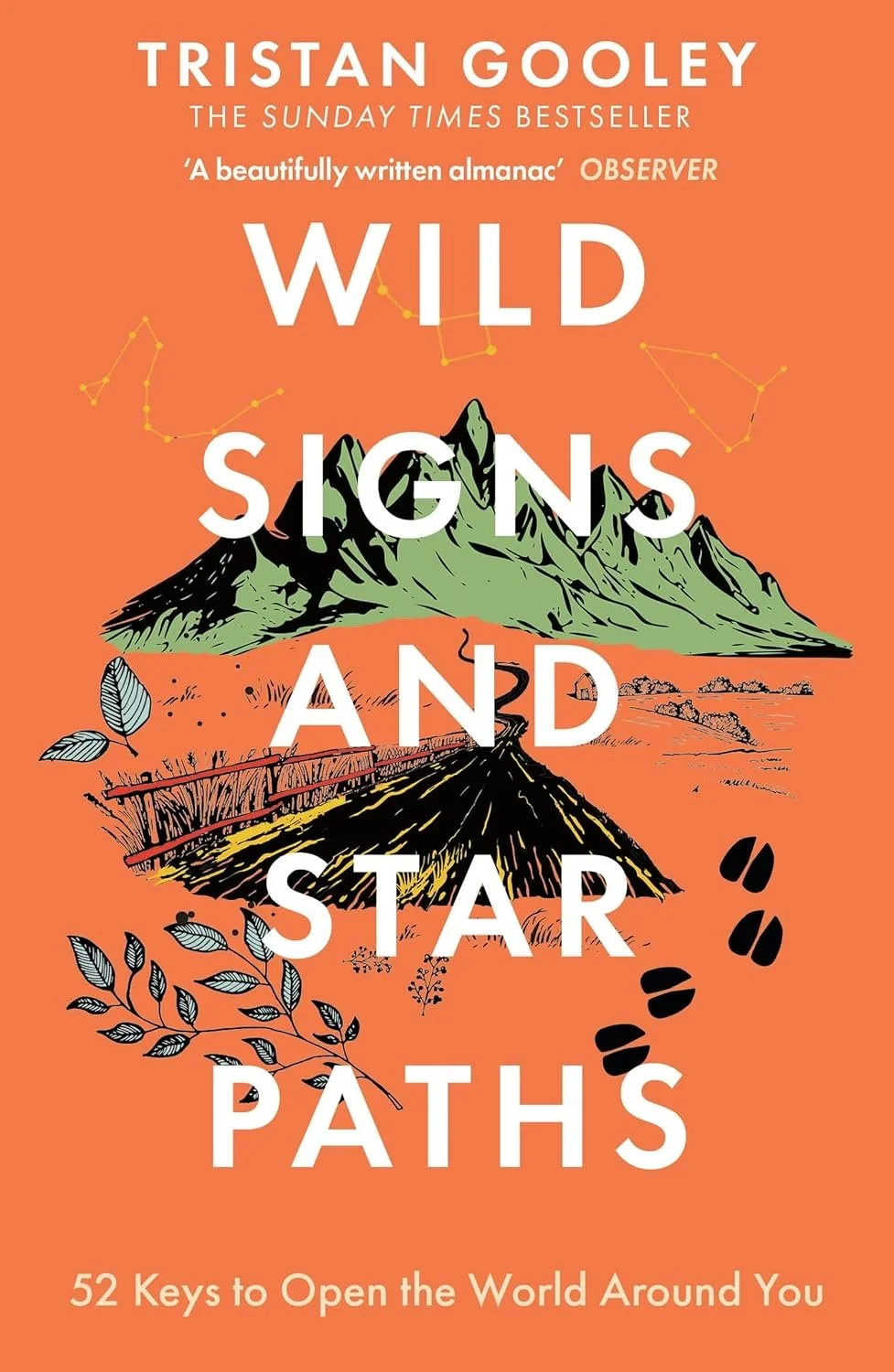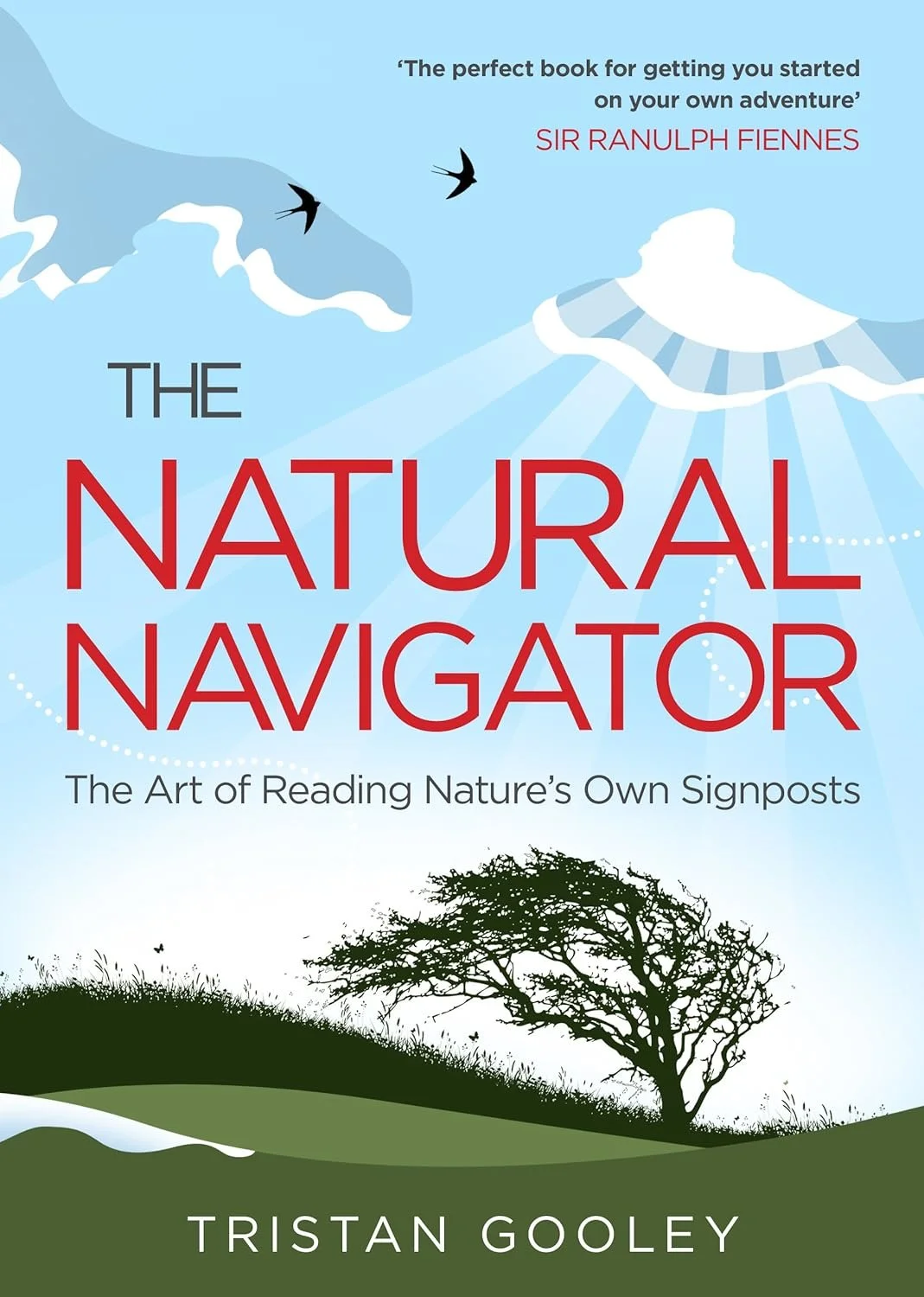Tristan Gooley
on the Ancient Art of Natural Navigation
“The Sherlock Holmes of Nature” is devoted to a unique GOD: Go OutDoors.
He's Tristan Gooley, the Natural Navigator, “a person sensitive to their landscape who is granted powers of understanding denied to machines.” But he's not a supernatural force. He’s someone we can all become!
Natural Navigation is the rare art of finding your way using nature, or how “one small clue can change the way you think about your surroundings dramatically.”
It’s not just a survival skill for moments of crisis, but a way of connecting with the world around us: “Everything outdoors is a clue. The sun, the moon, every plant, animal, cloud or star is a sign and part of our map.”
Through his school, Tristan teaches people how to read these signs - on land or water, in the wild or in cities: “For millennia, humanity walked the Earth without a map. It is not the map that should make sense of the land, but the land that will make a map for us.”
He has spent his life proving this - leading pioneering expeditions, sailing solo across the Atlantic, piloting aircraft over Africa and the Arctic. A Fellow of the Royal Institute of Navigation, the Royal Geographical Society (with IBG), and the Royal Scottish Geographical Society, he is the only living person to have both flown solo and sailed singlehanded across the Atlantic. His books, including The Natural Navigator and The Hidden Seasons, are must-haves for anyone curious about the beautiful world outside!
As a child, he spent hours outdoors, intuitively forming a relationship with nature. He discovered that navigation was not just about getting from one place to another, but about shaping your own journey: “You’re either a passenger or a navigator. While there’s nothing wrong with being a passenger, it’s just a lot more fun to choose your own route!” Growing up, he realised the richness of a journey wasn’t measured in distance: “When I came home from a 1,000-kilometre expedition, I’d go for walks in the countryside. Often, those shorter journeys were just as fascinating and more challenging.” From there, everything became a clue: “Absolutely everything outdoors is a sign. Mental map-making became richer and more rewarding.”
His inspiration comes from his own adventures and the great wayfinders: Pacific islanders, Tuareg, Bedouin, Amazigh, Dayak, Vikings, Arab seafarers: “We’re all descended from nature’s puzzle-solvers.” Our brains are designed to notice, to connect the dots. For Tristan, teaching these ancient skills is his way of offering a fun way for people to exercise their deductive minds and experience the fascinating world our ancestors once knew.
Read his answers for Inspirators and let’s become more observant, “only then can we enjoy the bigger game of deduction.”
Thank you, Tristan, for being a Natural Navigator!
#INSPIRATORS QUESTIONNAIRE
Name: Tristan Gooley
Company / Institution: The Natural Navigator
Title: Natural Navigator
Website: https://www.naturalnavigator.com/
LinkedIn profile: https://www.linkedin.com/in/tristan-gooley-514027a/
Country of origin: UK
Country you currently live in: UK
Main business challenge you face: I get lots of variations of a simple message, typically through social media. We live in the age of free information, which is positive in many situations. But that model only works if you’re happy for all information to come from amateurs. The moment you want professionals working hard to improve information, you have to accept that the difference between amateurism and professionalism is that somebody gets paid.
Main driver that keeps you going: Probably curiosity. I get huge satisfaction from discovering new things, and I’m lucky that the area I work in is so broad — one minute it’s astronomy, the next botany, the next geology.
The trait you are most proud of in yourself: Kindness and tenacity, in equal measure.
The trait you most value in others: Kindness and passion.
Passions & little things that bring you joy:That’s really the core of my work - finding joy in deducing meaning from small observations. Every day I hope to spot two or three, and sometimes many more. It could be a pattern in the water — like today, I noticed a “dead wake,” the calmer area a boat leaves behind. There are thousands of these signs in the world, and I’m lucky to notice many of them each day. They bring me small moments of joy, sometimes big ones.
The Inspirators who determined you to take the regenerative path: My work isn’t directly regenerative, at least not physically. If anything, I’m regenerating curiosity, attention, and understanding of environments. By helping people see the world as our ancestors did — finding meaning and developing a deep understanding — I hope to encourage positive decisions about how we take care of the environment.
A starting point for companies or professionals that are beginning the regeneration journey:
I can’t give professional advice — it’s not my area — but in general: be curious.
Most used and abused clichés in sustainability that bother you:
The words “should” and “ought.” We don’t change behavior by telling people what they should or ought to do. What works is fascination. Instead of saying “you should connect with nature,” I’ll say, “Did you know you can use butterflies to make a map or find north by looking at tree branches?” The rest follows naturally.
An honest piece of advice for young people who lose hope: Oh, that's an interesting but challenging one. The most interesting positive developments happen when we find our passion and start doing fascinating things within a niche. When you’re young, it’s easy to see only a giant, scary world. But if you find that one thing that speaks to you, you start to discover exciting possibilities.
Books that had a great impact on you / Must-Reads for any regenerative professional:
I’ve read several biographies of Ernest Shackleton. Most people are inspired by his bravery and leadership. What struck me was that he thrived in extreme situations — his calling, his special talent. Outside of that, he wasn’t especially impressive. I found that inspiring, because in real life, you can put yourself “on the right side of the line” by choosing areas that fit your passions and skills.
I don’t really have must-reads. I believe the right book finds you if you’re curious enough. I think we should be curious. And the book that will have the most impact on each of us as individuals will find us if we're curious enough.
Movies / Documentaries you would watch all over again: Jiro Dreams of Sushi - and it's all about the incredible power of passion and how it can lead people to extraordinary, beautiful levels of expertise by focusing on an area that they are passionate about.
Websites / Podcasts you visit frequently: I don’t have one I return to - I’m constantly jumping around.
Music that makes you (and your heart) sing: Recently, Fontaine’s D.C. Over the years: Massive Attack, Happy Mondays, Leftfield, and Moby - I’m a big fan of Moby.
Places you travelled to that left a mark on you: All of them, in different ways. When I was 19, I spent three days lost on an active volcano in Indonesia with a friend. That must have had a big impact — though I’m still unpacking exactly how.
Global Regenerative Voices you recommend us to follow
The Klosters Forum, which I was happy to be invited to. The people and ideas coming out of it are worth following.
Events we should attend / Best places for networking (online or offline): The Klosters Forum.
Impactful and relevant Sustainable Development or Regeneration courses or certifications:
The Klosters Forum again, but I’m not an expert on courses or certifications.
Reasons to feel optimistic about our future in 2030: Each time we face grim horizons, some individuals create extraordinary solutions. Necessity is the mother of invention, and hopefully, creativity will rise to meet the need.
Reasons to feel pessimistic about our future in 2030: There are many, but I don’t want to dwell on them; I don’t think it helps.
Regenerative Leadership qualities much needed today:
Engagement. I’m not a fan of ought or should. There are a lot of people telling other people how they should behave and not actually having as much impact as perhaps they'd like to believe they are. Or whereas when people actually, you know, do inspiring things or share inspiring ideas without the words ought or should, much more interesting things happen.
The Inspirator(s) you are endorsing for a future edition:
Everyone I’ve met at The Klosters Forum. They’ve been the most inspiring voices in this field.
The quote that inspires you:
I’m not sure who said it — maybe Mark Twain: Find a job you enjoy doing and you will never have to work a day in your life.
Your quote that will inspire us:






